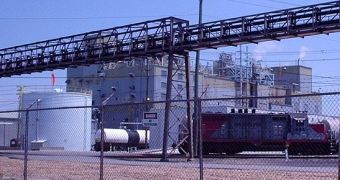Yesterday, The National Environmental Justice Advisory Council (NEJAC) recommended the U.S. Environmental Protection Agency (EPA) to take measures of precaution regarding a potential chemical disaster, by using its authority provided by the Clean Air Act.
NEJAC IS trying to make the Obama administration use the present regulations to stimulate the adoption of safer chemical processes which would be able to successfully replace those developed in the present, which are considered dangerous by the organization.
EPA's Risk Management Program highlighted that the US has 483 facilities in which chemicals compounds are being handled every day. The study showed that more than 100,000 individuals who work in such places are threatened by a potential chemical accident.
Furthermore, it seems that Texas could be the region most affected by such an event, since 106 companies that operate with chemicals have their headquarters located in this state. Second place is occupied by Huston, which has developed only 21 enterprises which operate on the market of chemical compounds.
"NEJAC's recommendation recognizes that these chemical facilities are a huge threat to disadvantaged communities, and the EPA must do everything it can to protect us from the risk of a poison gas disaster," declared Juan Parras, executive director of Houston-based Texas environmental Justice Advocacy Services (TEJAS)
Other officials joined efforts with Parras, to make sure that they will be able to convince EPA to use its legal powers to prevent a chemical catastrophe from taking place.
Richard Moore of Los Jardines Institute (Albuquerque), Michele Roberts of Advocates for Environmental Human Rights (New Orleans), Jose Bravo of Just Transition Alliance (San Diego), and Ana Mascareñas of Los Angeles Physicians for Social Responsibility are all fight for the same cause.
"Bhopal amendment" represents a set of regulations provided by The Clean Air Act, adopted in 1990 which forces chemical adopt effective measures is order to make sure that the probability of a chemical disaster is next to zero.
Despite its obvious importance and utility, the set of regulations had never been entirely applied. The plants can take this issue into their own hands, because safer alternatives to their technological processes are available at this point in time.
In fact, many power plants have decided, on their own will, to improve their safety measures by relying on low-risks options. The main problem is that there is no present regulation able to force the remaining power plants to adopt the beneficial changes.
On June 21st, a group of 104 organizations coming from various fields of activity have written a letter to President Obama, talking about the decisive role played by EPA's Clean Air authority on stopping chemical disasters from actually taking place.
“We respectfully urge you to use the authority of the Clean Air Act as soon as possible to reduce these catastrophic risks to millions of Americans so that they will no longer be targets of terrorism or Bhopal magnitude chemical accidents,” affirmed the officials in the letter.

 14 DAY TRIAL //
14 DAY TRIAL //